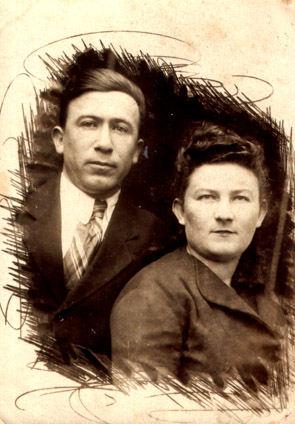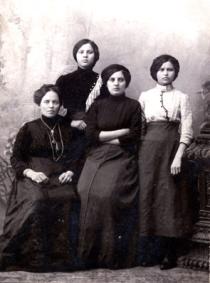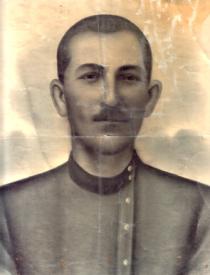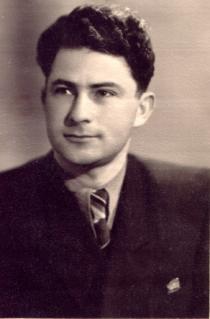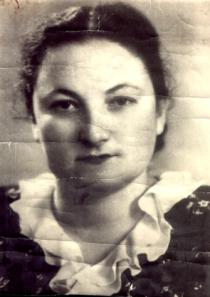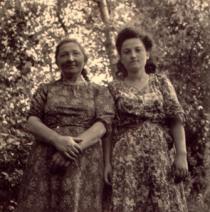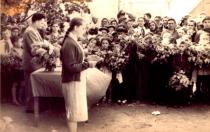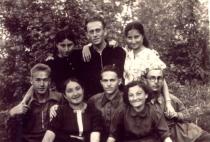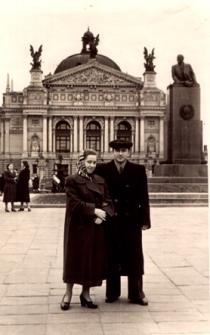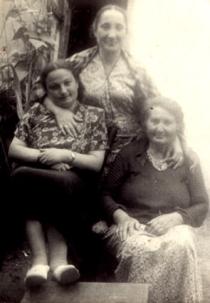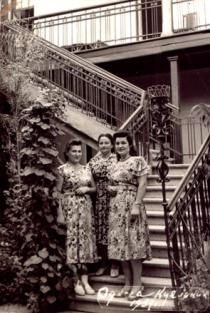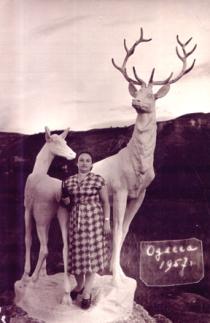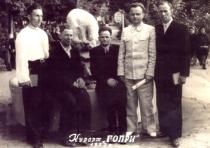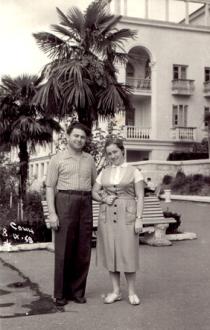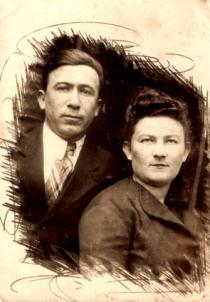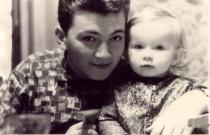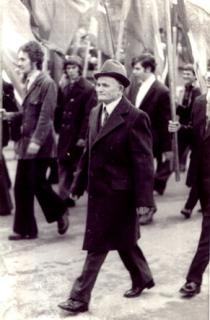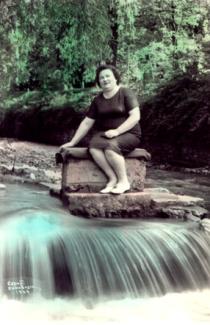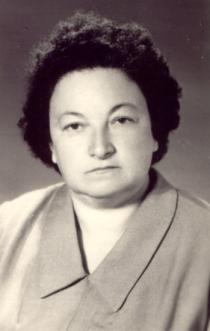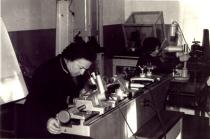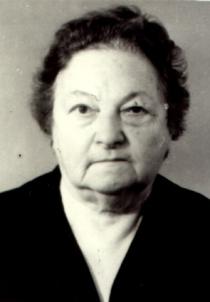This is me photographed with my brother Boris Katz. This photo was taken in Mogilyov-Podolskiy in 1960.
In 1946 I went to teach at the agricultural courses in Mogilyov-Podolskiy. I worked there for a year. I got along well with my colleagues and students. I faced no anti-Semitism. I got married in 1949. Our neighbor had a relative in Chernovtsy, regional town of Bukovina [650 km from Kiev] who was single. She told me about him. When he visited her, she introduced him to me. Somehow the wedding arrangements were expedited and I didn't even have time to learn more about my husband. Later I understood why his family was in such hurry. I don't want to talk about this period of my life. I don't even want to pronounce the name of my first husband. He turned out to be mentally retarded, but nobody ever mentioned this to me before the wedding. We had a short civil ceremony in the registry office, a small dinner party for the closest relatives in the evening and left for Chernovtsy. Chernovtsy seemed a real European town to me. It was a very cozy and clean town with wide streets. Chernovtsy was a Jewish town: before the war the Jewish population constituted about 60% of the total population. There were fewer left after the war: some perished and the others moved to Romania and Palestine. However, many Jews stayed: they spoke Yiddish in the streets, synagogues operated and there was a Jewish Theater. I went to all performances. I liked the surrounding of reserved, polite and well-dressed people. I went to work as an agronomist to the kolkhoz in Novoselitsy village near Chernovtsy. Commuted to work by bus. My husband and I lived several years together being absolute strangers to one another. I divorced him and the management of the kolkhoz submitted a solicitation to the executive committee for providing lodging to me. I received a small room in a shared apartment. I was happy to have a place to live.
I worked in Novoselitsy until 1959. Then I got an offer of the position of a scientific employee in the All-Union scientific research institute of potato farming, its affiliate in Chernovtsy, where I worked in the department of potato farming till 1983. The institute had its experimental fields where I spent much time. Farming is hard work, but I liked my job. I didn't face any anti-Semitism. I got along well with my colleagues. We were like a family. We celebrated Soviet holidays and birthdays together. My colleagues were my friends and my family. I always spent my vacations in Mogilyov-Podolskiy. I stayed with my mother and saw my brother, sister and school friends every day.
My brother Boris finished school with all excellent marks and entered Kiev Financial and Economic College. He lived in the dormitory and spent vacations in Mogilyov-Podolskiy. Boris finished the college with honors and could choose a location for his job assignment. He decided for Mogilyov-Podolskiy. He was offered a job of an accountant at the agricultural machine building plant named after Kirov. Soon he was promoted to chief accountant of the plant. My brother was a convinced communist and joined the party at the plant. He married Regina Samoilova, a Jewish girl from Vinnitsa, in the late 1950s. He met her in Kiev. Regina studied in Kiev Medical College. She followed her husband to Mogilyov-Podolskiy, where she was a cardiologist in the local hospital. They had a secular wedding. Their son Viacheslav was born in 1963. My brother died young, when he was a little over 40. His liver problems that he had after the Botkin disease that he had in the ghetto resulted in the cirrhosis. The plant management arranged for my brother to go to the best clinic in Moscow, but there was nothing the doctors could do to help my brother. Boris died in 1974. The cemetery is on a hill in Mogilyov-Podolskiy and workers of the plant carried my brother's casket on their shoulders taking turns the whole way up the hill. Everybody loved him. The funeral was secular. Regina never remarried. She moved to Perm town in Russia where she had relatives. She worked and raised her son. Viacheslav finished the Faculty of Economy and Law of Perm University. He works as senior credit inspector in a bank. Regina is chief of the cardiology department of the hospital for invalids of the war.
